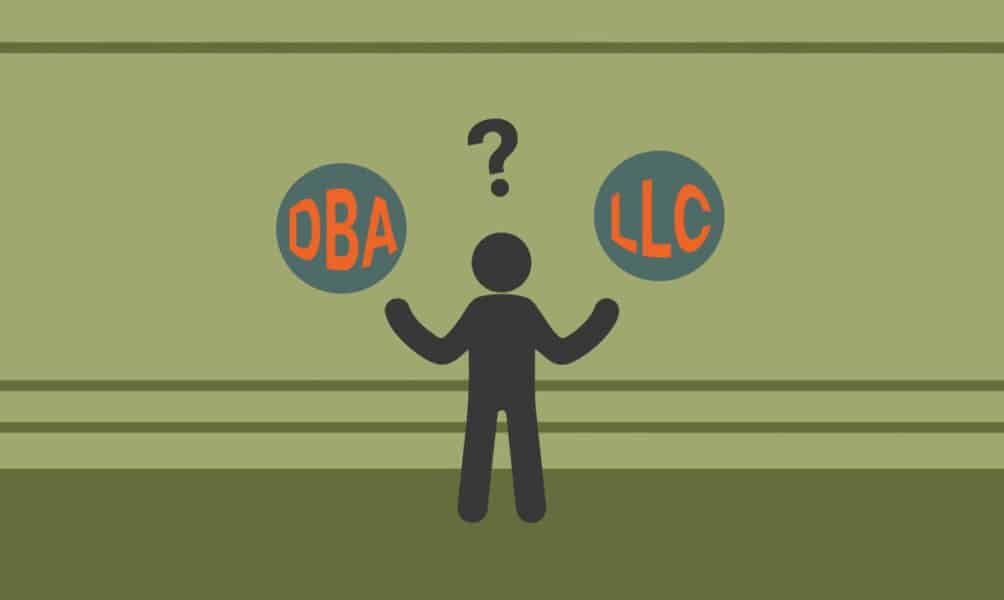If you’re starting an LLC, the business entity formation process is one of the first and most important hurdles. This step can be terribly complex ...
What is a Foreign LLC?
Written by: Carolyn Young
Carolyn Young is a business writer who focuses on entrepreneurial concepts and the business formation. She has over 25 years of experience in business roles, and has authored several entrepreneurship textbooks.
Edited by: David Lepeska
David has been writing and learning about business, finance and globalization for a quarter-century, starting with a small New York consulting firm in the 1990s.
Published on November 9, 2021

A foreign limited liability company (LLC) is simply an LLC that is doing business in a state other than the one in which it was registered. For instance, if your LLC is registered in Alabama, but you also do business in Georgia, you would need to register as a foreign LLC in Georgia.
What Is an LLC?
An LLC is an increasingly popular business structure for startups, offering liability protection for ownership and greater flexibility than a corporation, particularly in terms of taxes. The LLC itself does not pay taxes. As a “pass-through” entity, income passes through the business to the owner or owners, who report it on their personal tax returns. An LLC is created by filing paperwork with your state, and nominal fees are involved.
An LLC offers its owner or owners, who are called members, considerable flexibility in terms of management. You can choose your management and operational structure and decide how your LLC will be taxed. Your LLC can have a single member or multiple members, all of whom have personal liability protection, meaning your personal assets are not at risk if you cannot pay business debts or are involved in a lawsuit.
When You Should Register a Foreign LLC
If you have an LLC in your home state but do business beyond its borders, you need to register as a foreign LLC in all of the other states in which you do business. Each state has different rules defining what doing business in their state means. Check with the secretary of state in states where you may be doing business to see if you qualify as a foreign business according to their rules.
Generally, you are doing business in another state if:
- You have a physical presence of any kind in that state
- You have employees in that state
- You regularly meet with clients, managers, or investors in that state
- You are licensed to do business in that state
You also may be considered a foreign business if your business has a bank account or property in that state. However, if you are an online business in one state but you happen to make a lot of sales in other states, you are probably not considered a foreign business and are not required to register a foreign LLC.
If you do business in other states, another option is to form entirely new LLCs in each state. You need to be careful, though, that each business is completely separate. The advantage of this is that your other LLCs are not liable if one of your LLCs is sued or must file bankruptcy.
How to Form a Foreign LLC
Forming a foreign LLC is similar to forming an LLC in your home state, but every state has different requirements and processes to register a foreign LLC.
Here are the steps to form a foreign LLC:
- Register your LLC in your home state if you have not done so already.
- Choose a registered agent in the state where you will be doing business. Each LLC that you register needs a registered agent in that state if the state requires one. A registered agent is a person or business authorized to accept legal, tax, and financial documents on behalf of your business. You can check your state’s website to see if you are required to have a registered agent for your LLC. You may want to choose a national service so that as you expand you have the flexibility to form foreign LLCs in other states without having to locate new registered agents in each state.
- Check with the secretary of state to learn how to register your foreign LLC and see what name requirements they have. Choose a name that meets those requirements.
- Check with the secretary of state to see what they require to form your foreign LLC. You will probably need:
- LLC’s name and name you are doing business as in your home state
- State where LLC was originally registered and date of formation
- Street address of the original LLC
- Street address of the LLC in the state where you do foreign LLC registration
- Name and personal info of your registered agent
- Original LLC registration documents from your home state
- Fill out the required paperwork for that state including your Articles of Organization, an Operating Agreement if required, and any other documents required by the new state.
- Pay associated fees for the foreign LLC registration, which vary by state.
- Check the new state’s requirements for annual filings, annual meetings, and other ongoing requirements.
Conclusion
Forming a foreign LLC is not difficult, and is generally required if you are doing business in other states. You need to make sure that you comply with all state requirements – if you don’t, penalties can be steep.
It is recommended that you consult with an attorney to make sure that you are doing everything required. As you continue to expand your business, it’s best to keep track of all the details to make sure you avoid any pitfalls, and a professional can help you to do so. Then you can focus on making money!
Subscribe to Our Newsletter
and gain insider access to cutting-edge business insights and trends.
Featured Resources

10 Best LLC Formation Services
Published on August 22, 2022
Read Now

Difference Between DBA and LLC
Published on October 7, 2021
If you’re starting a business, you may have heard about limited liability companies (LLCs) and doing business as (DBA) registrations, whichare ...
Read Now

How Many DBAs Can an LLC Have?
Published on September 2, 2021
If you’re in the process of forming a limited liability corporation (LLC) or have already formed one, the thought of using multiple DBAs might ...
Read Now
Comments